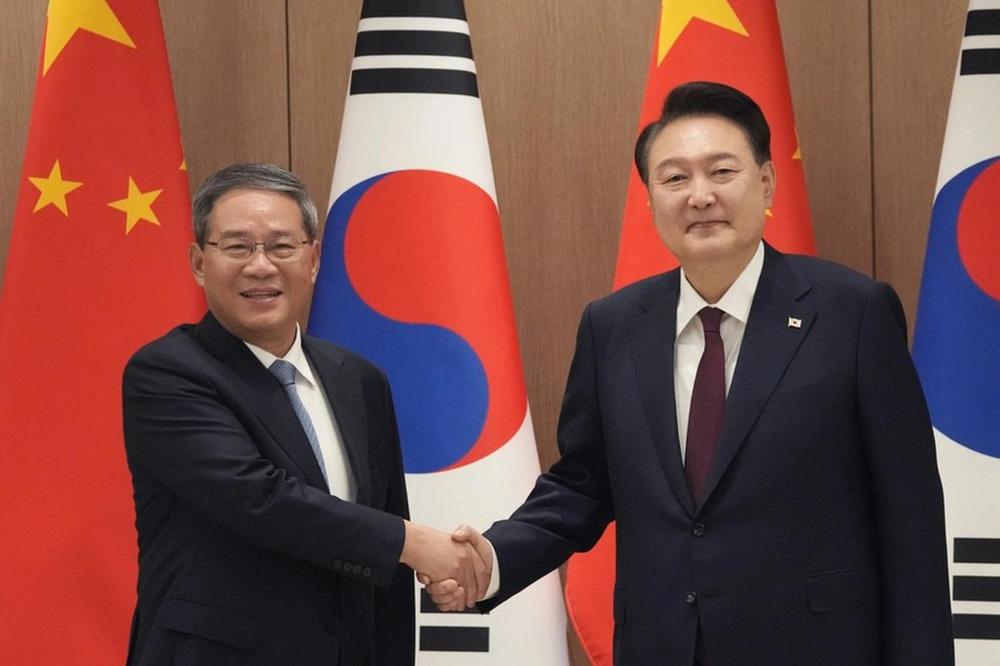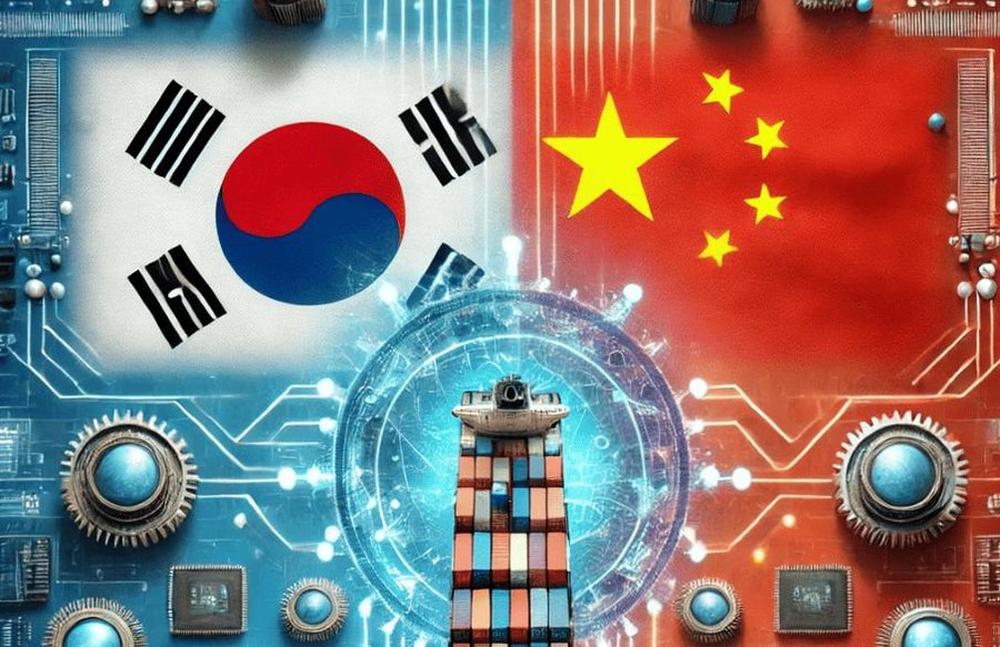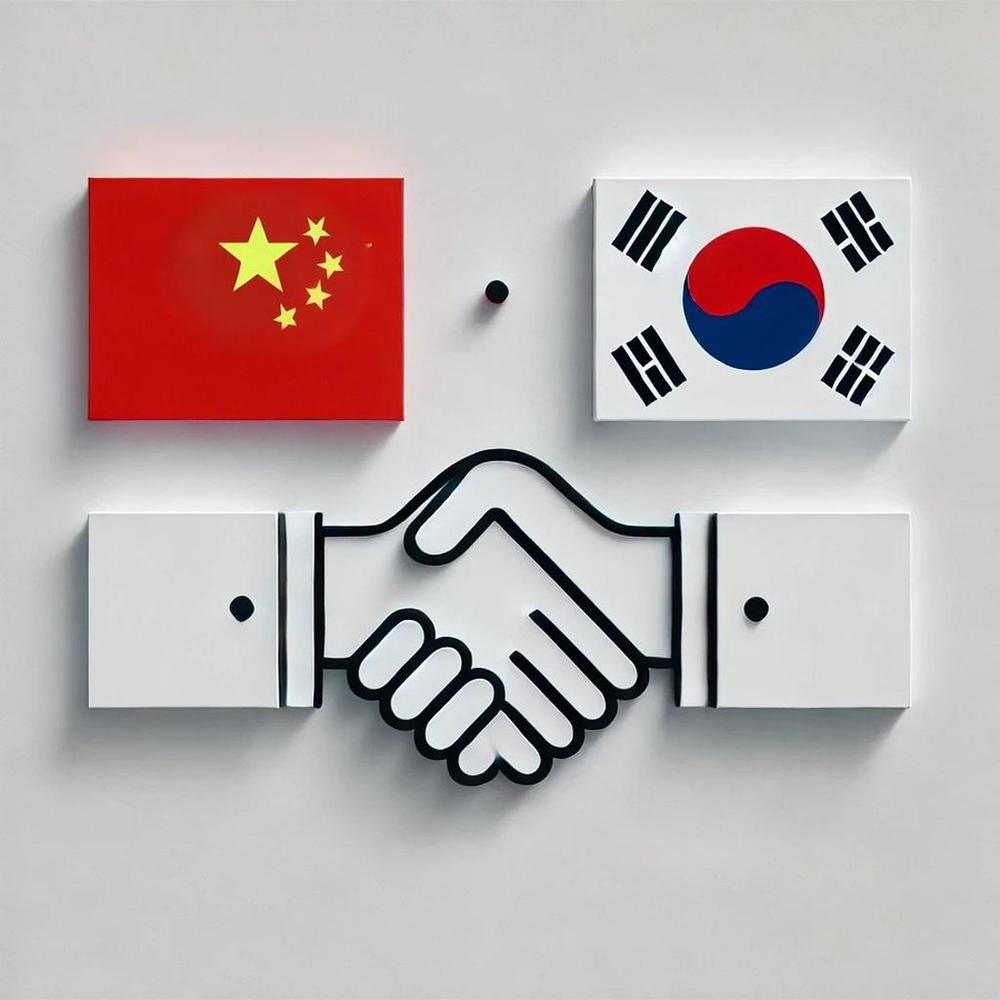
- #China
- #Nuclear & Missile Issues
- #South Korea
- #US Foreign Policy

► Key causes of deterioration in ROK-China relations: China’s dissatisfaction and concerns over the Yoon administration’s adjustment of the ROK’s foreign policy to respond to intensifying U.S.-China strategic competition and the increasing nuclear threat from North Korea.
► Reasons why China is pushing to improve ROK-China relations: to assist domestic economic recovery, send a warning message to North Korea, and prepare for U.S. pressure during Trump’s second term.
► Major obstacles to the sustainability of ROK-China rapprochement: Differences in perceptions of the other party’s core national interests and South Korea’s domestic political situation
Key causes of deterioration in ROK-China relations
South Korea’s security environment has deteriorated dramatically over the past few years. The strategic competition between the U.S. and China significantly narrowed the strategic space that South Korea was able to enjoy when the two great powers were cooperating. On the other hand, North Korea’s nuclear capabilities are rapidly and continuously increasing. According to South Korean experts, North Korea already has tactical nuclear capabilities. Additionally, the DPRK's Policy on Nuclear Forces Act, which was enacted in September 2022, clearly stated North Korea’s intent to preemptively use nuclear weapons if a military conflict with South Korea were to occur and to reverse the tide of war if the North Korean leadership or major strategic locations are endangered. This nuclear forces policy was also incorporated into the DPRK’s constitution in September 2023. Given that it is only a matter of time before North Korea has the strategic nuclear capability to directly strike the continental U.S., South Korea is facing the worst security threat since the end of the Cold War.
As a response to the escalating nuclear threat from North Korea, the Moon Jae-In administration sought to resolve the North Korean nuclear issue through bilateral talks between the United States and North Korea and establish a peace regime on the Korean Peninsula by ending the Korean War. However, it became difficult to resolve the North Korean nuclear issue after the U.S.-DPRK negotiations in Hanoi in February 2019 ended without any results. Consequently, the declaration of the end of the Korean War and the initiative to establish a peace regime on the Korean Peninsula lost momentum when the North Korean nuclear issue remained unresolved.
President Yoon Suk Yeol, who came to power in May 2022, prioritized ensuring South Korea’s security from North Korea’s nuclear threats and vigorously promoted strengthening the ROK-U.S. alliance and establishing security cooperation between South Korea, the U.S., and Japan. As a result, South Korea’s foreign policy has also undergone significant adjustments. However, China strongly opposed these South Korean foreign policy adjustments. This is because China’s fundamental strategic goal for the Korean Peninsula is to increase its influence over South Korea while retaining its influence over North Korea. Moreover, the Korean Peninsula and South Korea’s strategic importance to China grows as strategic competition between the United States and China intensifies. However, in this situation, South Korea is further strengthening security cooperation with the United States.
Looking back on ROK-China relations since President Yoon Suk Yeol took office, China’s strong protest against President Yoon Suk Yeol’s mention of the Taiwan issue during an interview with Reuters and the continued disagreement over the deployment of THAAD can be cited as the reasons for the deterioration of ROK-China relations. However, it can be assessed that China’s discontent and strained relations with South Korea stem mainly from concerns over the Yoon Suk Yeol administration’s foreign policy adjustments to cope with the intensifying U.S.-China strategic competition and the growing nuclear threat from North Korea. In particular, China is greatly dissatisfied with South Korea for not only strengthening its alliance with the U.S., but also playing a leading role in establishing the trilateral security cooperation between South Korea, the U.S., and Japan.
Reasons why China is pushing to improve ROK-China relations
ROK-China relations worsened after the leaders of the three countries, South Korea, Japan, and the United States, announced the Washington Declaration in April 2023. Although economic, academic, and cultural exchanges between South Korea and China began to recover in the second half of 2023, China remained indifferent to improving inter-government relations with South Korea until early 2024. However, starting with the ROK-China-Japan summit held at the end of May 2024 after South Korea’s general election, China began more actively engaging with the South Korean government such as the 2+2 Diplomatic Security Talks and the Vice Foreign Ministerial Strategic Dialogue. Compared to last year, local government exchanges, and economic, academic, and cultural exchanges between the two countries have expanded.
Why has China started to improve relations with South Korea, despite harboring dissatisfaction with South Korea’s foreign policy? First, China’s domestic economic recovery has emerged as an urgent task. Sustainable economic growth is not only the foundation for China to maintain domestic stability and external influence but also a prerequisite for winning the competition with the United States. Therefore, maintaining the engine of economic growth has become an imperative priority for China. As one of China’s major trading partners, maintaining a stable economic and trade relationship with South Korea has become critical.
Second, it appears that China is attempting to warn North Korea through intergovernmental talks with South Korea. Several reports have demonstrated that the relationship between North Korea and China has deteriorated. More fundamentally, analysis reveals that there has been significant conflict between North Korea and China due to differences in strategic goals. China seeks to avoid military confrontation or complete decoupling with the United States. By contrast, a new cold war between the U.S. and China would benefit North Korea. Thus, North Korea is encouraging China to enter a new cold war with the United States, resulting in China’s rejection of this push and resentment of North Korea.
Third, China needs to effectively prepare for U.S. pressure in Trump’s second term by all means. As Trump’s chances of winning the election increased, China sought to improve relations with neighboring countries with which it had conflicts. Trump vowed to impose an additional 60% tariff on China. In response, China will take measures such as diversifying trade, coordinating joint responses with countries affected by US tariffs, boosting domestic demand, controlling the export of strategic resources, and devaluing the Yuan. However, among these measures, trade diversification and joint responses require cooperation with other countries, and South Korea is seen as a potential partner when China takes these steps.
Major obstacles to the sustainability of ROK-China rapprochement
South Korea and China must adjust their perceptions of the other’s core national interests to ensure the sustainability of the ROK-China rapprochement. Security from the North Korean nuclear threat is the most crucial national interest for South Korea at the moment. However, China made clear its strategic support for North Korea in 2018, although relations between North Korea and China appear to have deteriorated significantly recently. It will not be easy for China to change its strategic position toward North Korea in a situation where strategic competition between the U.S. and China is expected to intensify with Trump’s return. Simultaneously, it is also difficult for South Korea to restore its strategic partnership with China, which adheres to strategic support for North Korea, as tensions between the two Koreas rise and North Korea regards South Korea as an enemy.
Meanwhile, disagreement between South Korea and China over the ‘One China’ policy remains unresolved. China is currently constantly demanding that the South Korean government ‘reaffirms its commitment to the One-China principle’. However, as stated in the 1992 ROK-China Joint Communiqué, the official position of the South Korean government is that “The government of the Republic of Korea recognizes the government of the People's Republic of China as the sole legal government of China, and respects the position of the Chinese side that there is but one China and Taiwan is part of China.” And as things stand, the South Korean government will not change its official position, which it has adhered to since 1992. Therefore, China’s dissatisfaction and demands regarding ‘One China’ issues are expected to continue.
Finally, on the night of December 3, 2024, President Yoon Suk Yeol declared emergency martial law but lifted it within six hours. It is impossible to predict at this point how long the impact and ripple effect this incident will have on South Korean domestic politics. However, South Korea’s domestic political turbulence will act as a significant constraint on its foreign policy. And China will also try to respond while keeping an eye on South Korea’s domestic political situation. Therefore, until the domestic political situation in South Korea is stabilized, China may not want to proceed with meaningful talks or negotiations with the current administration. If so, the momentum for the ROK-China rapprochement may lose steam.
In summary, China will continue to improve relations with South Korea motivated by its own needs as stated above, but this will be unable to bear the fruits of rebuilding strategic trust between the two governments. Additionally, removing obstacles that prevent the sustainable improvement of ROK-China relations remains challenging. As a result, it is anticipated that the improvement of ROK-China relations will be limited, focusing on exchanges between local governments, economics, academics, and culture, until the South Korean domestic political situation stabilizes.
[Thumbnail Image Credit: Pool/AP pic, used under Creative Commons license.]

Dr. Kim Dongchan is an assistant professor at the Graduate School of International Studies of Yonsei University and an executive committee member of the Yonsei Institute for Sinology (YIS). He has mainly focused on U.S.-China Relations in Strategic Domains and its impact on the Korean Peninsula, and Chinese foreign policy on the Korean Peninsula.


